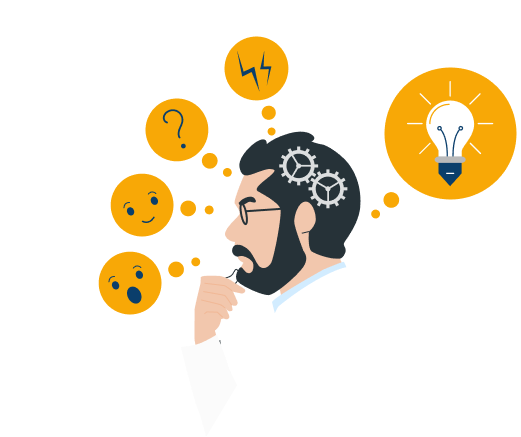 Blog posts
Blog posts
How to use emotions correctly when making decisions?
Behavioral science explains how we can't make decisions without taking emotions into account. Newristics
Newristics
 09 December 2019
09 December 2019
Optimize Pharma GTM communications
Innovative messaging market research
Analyze messaging with algorithms
Source for pharma insights and updates
Pharma's top behavioral science source
 Newristics
Newristics
 09 December 2019
09 December 2019

How often have you heard the phrase, “go with your gut”? For many of the decisions we make, we don’t have data readily at hand and because of this, we rely on personal experiences in order to make a decision. Affect Heuristic considers the association between a stimulus and the feeling, or effect, towards that stimulus. Simply put, it is the good feelings or bad feelings a person associates with a subject.

Affect Heuristic influences decision-making by preventing humans from making completely sound, logical decisions. It forces them into patterns of thinking that are driven by emotions rather than what rationally makes sense.
Let’s look at the following examples to see Affect Heuristic in action:
Example #1
When trying to decide which stock to invest their retirement in, a person may ask themselves, "How do I feel about this company?" or "Do I like this company?" instead of looking at the company's financial fundamentals.
Example #2
A patient may avoid a more effective treatment which is an injection because she had a bad experience giving blood in the past. Therefore, she has a negative association with needles, even though it is a more effective treatment than the oral alternative.
Example #3
Similarly, a woman has a sudden onset of extreme sensitivity to light and nausea. Instead of asking the question “Should I go to the hospital?”, she asks a question that is easier to answer, “how do I feel about going to the hospital?” Given her unpleasant experience at the hospital the year before, she decides not to go.
The main factor influencing Affect Heuristic is our brain’s inability to think fully like an algorithm, clouding our decision-making process and forcing the irrationally subjective impression.
Even though decision heuristics save time and conserve valuable mental resources, you can see the downside to irrational thinking!
In the above examples, a couple could lose their retirement savings and be forced to work well into old age. A patient may end up with a less effective treatment creating lasting impacts on their overall health and well-being. Another patient may avoid going to the hospital altogether and fail to receive potentially lifesaving treatment.
Clearly, it is in your best interest to learn to fight Affect Heuristic and make logical decisions. Try these 3 simple steps to make better, smarter decisions every time:

SLOW DOWN
Mental shortcuts work fast. Slowing down or stopping before making an emotional decision allows room for intentional thinking.

DO RESEARCH
Get other opinions, talk to friends and trusted sources, and investigate all the possible choices at hand.

FOSTER AWARENESS
Simply by becoming more aware of how cognitive biases and heuristics work, you can catch yourself falling prey to biased thinking and let your rational side call the shots instead!